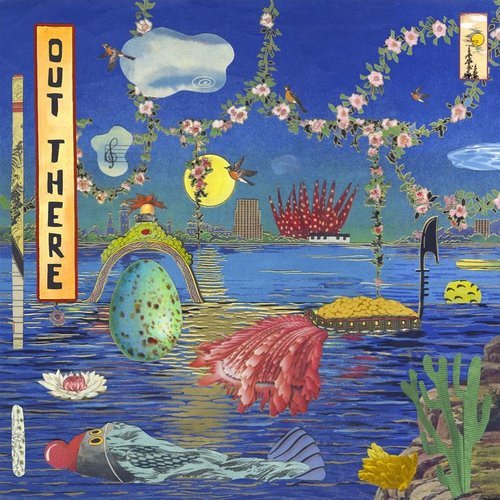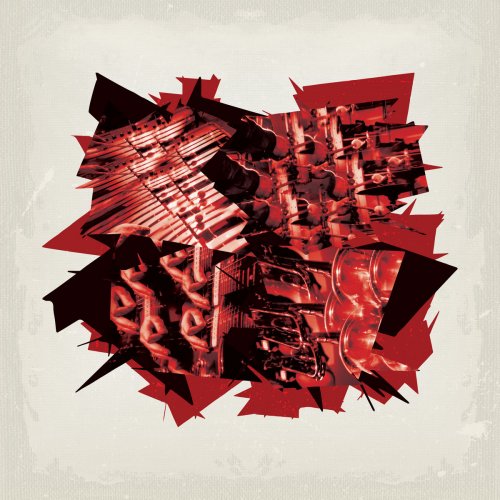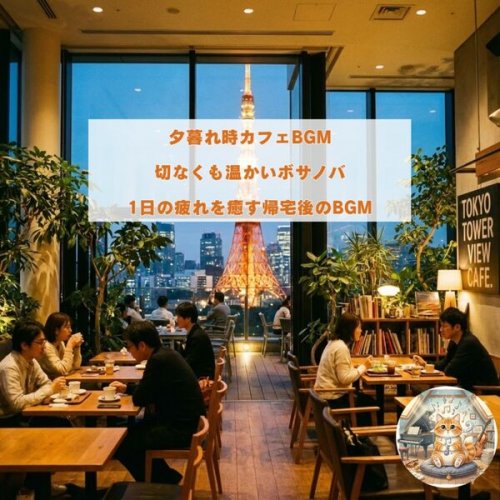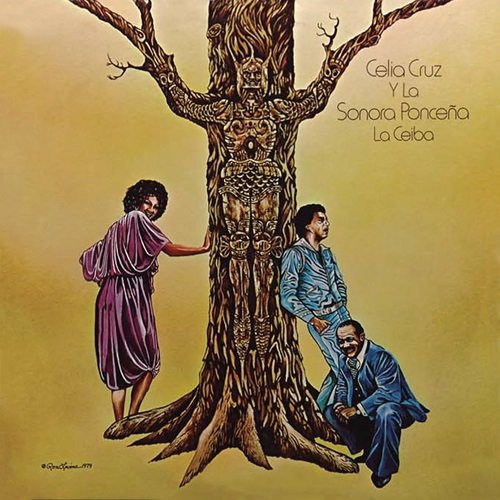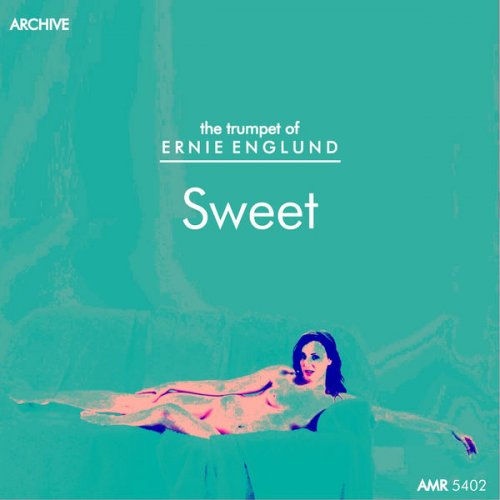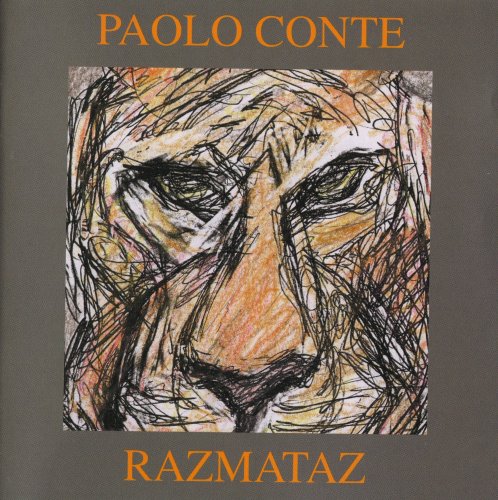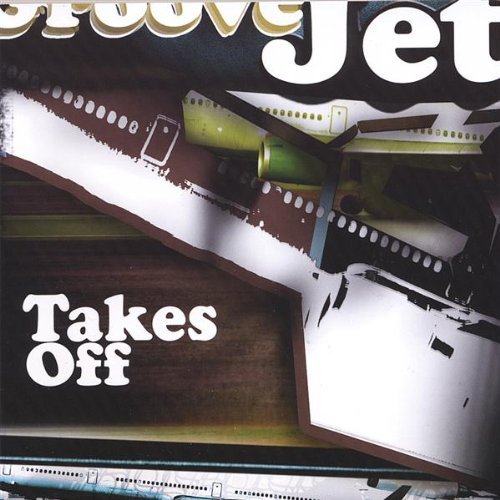Claudio Astronio - Alessandro Stradella: La Susanna (2012)
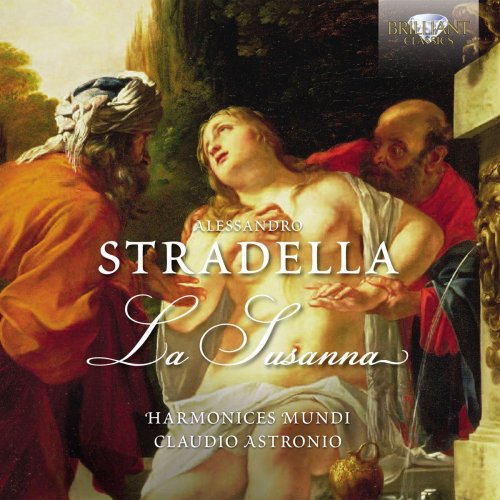
Artist: Harmonices Mundi, Claudio Astronio
Title: Alessandro Stradella: La Susanna
Year Of Release: 2012
Label: Brilliant Classics
Genre: Classical
Quality: FLAC (image + .cue, log, booklet)
Total Time: 1:30:00
Total Size: 428 MB
WebSite: Album Preview
Title: Alessandro Stradella: La Susanna
Year Of Release: 2012
Label: Brilliant Classics
Genre: Classical
Quality: FLAC (image + .cue, log, booklet)
Total Time: 1:30:00
Total Size: 428 MB
WebSite: Album Preview
Alessandro Stradella was one of the most famous composers of his time. When he was stabbed to death in 1682 it was said that "an Orfeo was murdered". The largest part of his oeuvre consists of secular cantatas. He also composed a number of works for the stage. He is known to have composed at least seven oratorios; the first, on a Latin text, has been lost. The other six belong to the genre of the oratorio volgare, the oratorio in the vernacular. The best-known and most frequently performed in our time is San Giovanni Battista (St John the Baptist).
Stradella was born in Rome and at an early age must have become acquainted with the oratorio genre. Such works were frequently performed in Rome, and found their origin in the Congregazione dell'Oratorio, which was founded in the 16th century by Filippo Neri. Originally they were set to Latin texts, for instance by Giacomo Carissimi, who was the most prolific composer of oratorios in the mid-17th century. Those in the vernacular were meant to bring the moral content closer to the people. The church considered this genre an important vehicle to spread the ideals of the Counter-Reformation.
La Susanna was commissioned by Duke Francesco II d'Este for performance in Modena, where this genre was very popular in the last quarter of the 17th century. The Duke's secretary, Giovanni Battista Giardini, who was also active as a poet, wrote the libretto which was set to music by Stradella with considerable speed. The libretto is based on the 13th chapter of the book of the prophet Daniel. The Roman Catholic and Greek Orthodox Churches placed this chapter with the deuterocanonical parts of the Bible; what Martin Luther referred to as the Apocrypha. The story is set in Babylon, in the time the Jews were living there in captivity. Two elderly men, called 'judges' in the libretto, fall in love with Susanna, a virtuous woman, married to Joakim. When they see her bathing in her garden, they try to seduce her, but she rejects them. They then accuse her of adultery. She is sentenced to death, but then the prophet Daniel intervenes. He asks the judges where the act of adultery had taken place. As their answers don't match, they are sentenced to death themselves and Susanna is set free.
As usual the oratorio is divided into two parts. It begins with a sinfonia in four short movements. The instrumental scoring is for two violins and bc, and is played here with one instrument per part. The story is told by the Testo in the form of recitatives, although he has a couple of arias as well. The recitatives reflect the ideal of recitar cantando, speech-like singing. Sometimes a recitative turns into a short arioso toward the end. The arias are rather short; Stradella seldom makes use of the dacapo form. The longest aria is also the most technically demanding: Susanna's lamento 'Da chi spero aita, o Cieli' - "From whom do I hope for help, o Heavens, if cruel are those who love me?" (part II). In addition to the arias there are some duets and choruses for three voices. In the last stage of the second part the two judges and Susanna sing a terzetto with an ingenious text in which the feelings of the two 'parties' mirror each other: "Unhappy we - Happy me", "No, no, my heart may no longer hope for comfort - Yes, yes, my heart may hope for comfort", "Who departs from God must face ruin - Who embraces God will reach a safe harbour". An oratorio always had a moral. The first part ends at the moment that Susanna is imprisoned, and a five-part chorus states: "Impure love was ever lethal. But when the murderous flame finds a nest in the old man's breast, it is a poison and a plague to the heart". The oratorio ends with another chorus for five voices: "Whoever against innocence shoots arrows of evil intent, must expect the thunderbolts of Heaven".
This is a the recording of a live performance, but that is hardly noticeable until the applause at the end. Had it been a studio recording I would have wished that some passages had been done again, because there are some insecurities. Gemma Bertagnolli gives a very good account of her role, but the aria 'Da chi sperio aita, o Cieli' has some very high notes which are not perfect. The other soloists are also good, but I would have liked Martin Oro to have performed the part of the Testo in a more declamatory manner. This recording has to compete with the one which was released in 2004 by Glossa, directed by Enrico Gatti. The cast is very strong, with Emanuela Galli singing the part of Susanna brilliantly; she is clearly superior to Gemma Bertagnolli. Roberto Balconi also surpasses Martin Oro as Testo. On the whole Gatti's performance is more expressive and more dramatic. If still available the recording of 1979 under the direction of Alan Curtis is still worthwhile. His soloists - Marjanne Kweksilber, Judith Nelson, René Jacobs, Martyn Hill and Ulrik Cold - were top of the bill in early music at the time.
Even so, this is a very respectable and enjoyable recording. At budget price, you can hardly go wrong with this disc. ~ Johan van Veen, MusicWeb-International
Stradella was born in Rome and at an early age must have become acquainted with the oratorio genre. Such works were frequently performed in Rome, and found their origin in the Congregazione dell'Oratorio, which was founded in the 16th century by Filippo Neri. Originally they were set to Latin texts, for instance by Giacomo Carissimi, who was the most prolific composer of oratorios in the mid-17th century. Those in the vernacular were meant to bring the moral content closer to the people. The church considered this genre an important vehicle to spread the ideals of the Counter-Reformation.
La Susanna was commissioned by Duke Francesco II d'Este for performance in Modena, where this genre was very popular in the last quarter of the 17th century. The Duke's secretary, Giovanni Battista Giardini, who was also active as a poet, wrote the libretto which was set to music by Stradella with considerable speed. The libretto is based on the 13th chapter of the book of the prophet Daniel. The Roman Catholic and Greek Orthodox Churches placed this chapter with the deuterocanonical parts of the Bible; what Martin Luther referred to as the Apocrypha. The story is set in Babylon, in the time the Jews were living there in captivity. Two elderly men, called 'judges' in the libretto, fall in love with Susanna, a virtuous woman, married to Joakim. When they see her bathing in her garden, they try to seduce her, but she rejects them. They then accuse her of adultery. She is sentenced to death, but then the prophet Daniel intervenes. He asks the judges where the act of adultery had taken place. As their answers don't match, they are sentenced to death themselves and Susanna is set free.
As usual the oratorio is divided into two parts. It begins with a sinfonia in four short movements. The instrumental scoring is for two violins and bc, and is played here with one instrument per part. The story is told by the Testo in the form of recitatives, although he has a couple of arias as well. The recitatives reflect the ideal of recitar cantando, speech-like singing. Sometimes a recitative turns into a short arioso toward the end. The arias are rather short; Stradella seldom makes use of the dacapo form. The longest aria is also the most technically demanding: Susanna's lamento 'Da chi spero aita, o Cieli' - "From whom do I hope for help, o Heavens, if cruel are those who love me?" (part II). In addition to the arias there are some duets and choruses for three voices. In the last stage of the second part the two judges and Susanna sing a terzetto with an ingenious text in which the feelings of the two 'parties' mirror each other: "Unhappy we - Happy me", "No, no, my heart may no longer hope for comfort - Yes, yes, my heart may hope for comfort", "Who departs from God must face ruin - Who embraces God will reach a safe harbour". An oratorio always had a moral. The first part ends at the moment that Susanna is imprisoned, and a five-part chorus states: "Impure love was ever lethal. But when the murderous flame finds a nest in the old man's breast, it is a poison and a plague to the heart". The oratorio ends with another chorus for five voices: "Whoever against innocence shoots arrows of evil intent, must expect the thunderbolts of Heaven".
This is a the recording of a live performance, but that is hardly noticeable until the applause at the end. Had it been a studio recording I would have wished that some passages had been done again, because there are some insecurities. Gemma Bertagnolli gives a very good account of her role, but the aria 'Da chi sperio aita, o Cieli' has some very high notes which are not perfect. The other soloists are also good, but I would have liked Martin Oro to have performed the part of the Testo in a more declamatory manner. This recording has to compete with the one which was released in 2004 by Glossa, directed by Enrico Gatti. The cast is very strong, with Emanuela Galli singing the part of Susanna brilliantly; she is clearly superior to Gemma Bertagnolli. Roberto Balconi also surpasses Martin Oro as Testo. On the whole Gatti's performance is more expressive and more dramatic. If still available the recording of 1979 under the direction of Alan Curtis is still worthwhile. His soloists - Marjanne Kweksilber, Judith Nelson, René Jacobs, Martyn Hill and Ulrik Cold - were top of the bill in early music at the time.
Even so, this is a very respectable and enjoyable recording. At budget price, you can hardly go wrong with this disc. ~ Johan van Veen, MusicWeb-International

![Don Leisure - Halal Cool J (2019) [Hi-Res] Don Leisure - Halal Cool J (2019) [Hi-Res]](https://www.dibpic.com/uploads/posts/2019-05/1557043283_folder.jpg)
![Jonas Sorgenfrei - Cracks in the Silence (2026) [Hi-Res] Jonas Sorgenfrei - Cracks in the Silence (2026) [Hi-Res]](https://img.israbox.com/img/2026-01/08/mgszx493tgyfi4ux2s13thgag.jpg)
